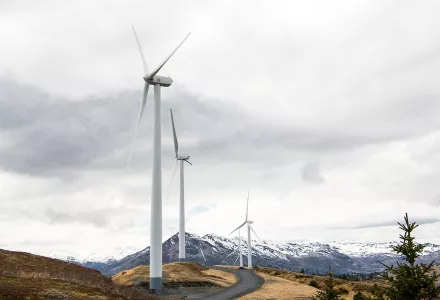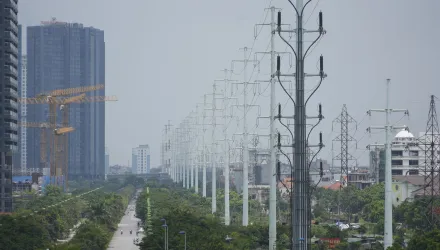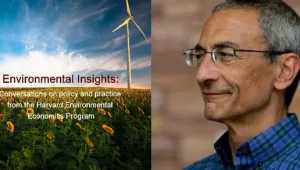Dana Tizya-Tramm, Chief, Vuntut Gwitchin First Nation
Chief Dana Tizya-Tramm was elected Chief of the Vuntut Gwitchin First Nation in November 2018 and provides leadership and direction for the Vuntut Gwitchin Government as well as overseeing executive, financial, operational, and general management. He brings years of experience in project management, strategic thinking, youth advocacy, organizational development, inspirational speaking, and governance. He has been co-chair of Gwich’in Council International, president of the Youth of the Peel Society, and project manager with Our Voices.
Vuntut Gwitchin First Nation declared a climate change state of emergency for lands, waters, animals and peoples in May 2019 and are on a path to carbon neutrality by 2030. As part of this, the award-winning Old Crow Solar Project will provide clean energy alternatives for Old Crow, reduce diesel dependence, and gain long-term energy security, revolutionizing community-designed and led projects and how Indigenous governments and power producers collaborate.
Yury Vasiliev, Executive Director, Institute of Arctic Technologies, Moscow Institute of Physics and Technology
Over the past 16 years, Yury Vasiliev is part of the senior management of large Russian companies, led the project of creation of technopark in sphere of high technologies of the Republic of Mordovia. In 2010 - 2014 he headed the Special Economic Zone (SEZ) in Zelenograd, initiated and spearheaded the creation of innovative territorial cluster «Zelenograd», one of the 13 winners of the Ministry of Economic Development competition. Since 2017, Yury Vasiliev participated in the creation and then headed the Institute of Arctic Technologies and the Scientific and Technological Center for Autonomous Energy in the MIPT.
Oskar Njaa, General Manager for International Affairs, The Bellona Foundation
Oskar is the head of the Russian Department in Oslo, and is responsible for project implementation and coordination of Bellona’s work across borders. Oskar has worked in Bellona since 2016 and has an MA from the University of Oslo in Russian area studies. Before he started in Bellona, he worked with the Norwegian environmental youth organization "Natur og Ungdom" as a coordinator for their Russia project, and has been a trainee with the Royal Norwegian Embassy in Moscow. During his studies, Oskar spent longer periods in Russia and he speaks Russian.
Guðmundur Haukur Sigurðarson, General Manager of Vistorka
Guðmundur Haukur Sigurðarson (B.Eng in Civil Engineering) is General manager of Vistorka ehf., a company based in Akureyri (Iceland). Guðmundur has a long standing experience in the field of renewable energy, including being former Chairman of the board of Orkeyjar ehf. (biodiesel production).
Berit Kristoffersen, Associate Professor, UiT The Arctic University of Norway, Arctic Centre for Sustainable Energy
Associate Professor Berit Kristoffersen’s expertise is in climate, energy, and oil politics in the Arctic and the Lofoten-Barents Sea area in particular. Her leadership position at the UiT on a number of interdisciplinary, multi-organization projects around the politics of Arctic infrastructure, energy, and environmental security is rooted in experience and access to local research networks at the Arctic Centre for Sustainable Energy (ARC) and beyond. At the ARC, Berit leads the research in the Smart Senja project, and the associated research project RENEW.
Kristín Linda Árnadóttir, Chair of the Arctic Council’s Expert Group on Black Carbon and Methane
Kristín is the Chair of the Arctic Council’s Expert Group on Black Carbon and Methane (EGBCM) during the Icelandic Chairmanship in 2019-2021. The main objective of the group is to assess and report on the progress of the implementation of the Artic Council’s Framework for Action on Black Carbon and Methane, and to inform policy makers from the Artic States and participating Arctic Council Observer states. Kristín is the Deputy CEO at Landsvirkjun which is an Icelandic power company. Landsvirkjun produces 100% renewable energy from hydroelectric, geothermal and wind facilities, and is one of Europe’s largest renewable energy producer.
Jennifer Spence, Executive Secretary, Sustainable Development Working Group
Jennifer Spence is the Executive Secretary for the Arctic Council’s Sustainable Development Working Group. She holds a PhD in Public Policy with an interest in Arctic and international governance, institutional effectiveness and innovative policy processes. Jennifer is also an Adjunct Research Professor with Carleton University’s Northern Studies Program. She lives in Ottawa, Canada with husband and two teenage daughters.




